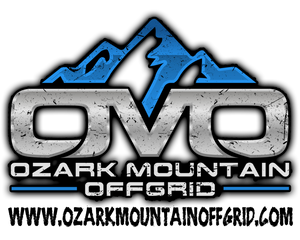As more homeowners and businesses in the U.S. turn to sustainable energy, understanding the durability of off grid solar systems becomes crucial. If you’re investing in an off grid kit, you likely want to know how long your system will last, how to ensure it continues working efficiently, and the role of energy efficiency in optimizing your setup.
Understanding the Lifespan of Off Grid Systems
The lifespan of an off grid solar system depends on its components and how well it's maintained. With quality equipment and regular care, most systems can last between 25 to 30+ years.
What Determines the Durability of an Off Grid System?
Several factors affect longevity:
-
Component quality
-
Environmental conditions
-
Installation quality
-
Usage habits
-
Maintenance frequency
-
Energy usage and monitoring
Main Components of an Off Grid System and Their Lifespan
Energy Generation: How Long Do Solar Kits Last?
While lifespan can vary based on the build quality of each component, installation quality/workmanship, and system maintenance, knowing approximately how long each part lasts helps you plan better.
Solar Panels: Efficiency and Lifespan
Solar panels generally last 25 to 30 years. Over time, they lose efficiency — about 0.5% per year. Top-tier panels, such as the ones offered by OMO Solar, degrade more slowly.
Inverters: Durability and Signs of Wear
Inverters usually last 10 to 15 years. At OMO we use high quality inverters, such as Sol-Ark in our systems. Signs they may need replacing include:
-
Reduced power output
-
Strange noises
-
Frequent resets
Charge Controllers: How Long Do They Last?
Charge controllers typically last 10 years or more. Proper sizing and installation are key to long-term performance.
Fuses and Other Protection Components
These small parts are essential. Fuses should be checked annually and replaced if damaged. Quality circuit breakers and surge protectors extend system life.
Factors That Affect Solar Kit Longevity
-
UV exposure
-
Overloading circuits
-
Poor ventilation
-
Improper installation
Energy Storage: Lifespan of Off Grid Batteries
Your battery bank is crucial for storing energy.
Lead acid batteries, once commonly used in off-grid systems, have a shorter lifespan compared to lithium-ion batteries. They come in various types, such as flooded, AGM, and gel, each with different maintenance needs. Flooded lead acid batteries require regular water refilling and cleaning, while AGM and gel types are maintenance-free but generally more expensive. Lead acid batteries are more affordable but need increased care, especially in varying temperature conditions, to ensure optimal performance.
OMO Lithium Batteries
OMO’s lithium batteries offer outstanding high capacity and a lifespan of 10 to 15 years, with over 6,000 cycles. Their advanced BMS (Battery Management System) ensures longer life. All this is backed by OMO’s world class support and warranty.
Best Practices for Extending Battery Life
-
Avoid deep discharges below 20%
-
Keep batteries cool and dry
-
Perform regular firmware updates (if applicable)
-
Balance loads evenly
-
Monitor and manage solar battery life effectively
Power Management: How Durable Are Inverters and Charge Controllers?
Both inverters and controllers require regular checkups.
Signs of Wear and When to Replace Them
-
Lower efficiency
-
Overheating
-
Fault codes
Maintenance Tips for Longevity
-
Clean dust from vents
-
Inspect wiring
-
Keep firmware updated (for smart models)
Factors That Affect the Longevity of an Off Grid System
Climate and Environmental Conditions
Snow, heat, humidity, and salt air all impact system longevity. Protective housing and weather-resistant materials help.
Quality of Components and Installation
Choose certified installers and Tier 1 components to avoid premature failures.
Regular Maintenance and Inspections
Annual system checks and timely repairs keep things running smoothly.
Usage Patterns and Load Management
Overloading shortens lifespan. Use load balancers and energy-efficient appliances.
How to Extend the Lifespan of Your Off Grid System
Preventive Maintenance Checklist
-
Inspect solar panels for cracks
-
Clean battery terminals
-
Test inverters monthly
-
Replace filters regularly
Upgrading Key Components for Better Efficiency
Upgrading to high-efficiency panels or next-gen inverters can boost performance and system life.
Upgrading components in solar energy systems, such as deep-cycle batteries, can significantly enhance efficiency and reliability.
Choosing Reliable and Durable Equipment
Invest in brands like OMO Solar for long-lasting and reliable off grid kits.
When to Replace or Upgrade Your Off Grid System
Signs of System Failure
-
Unstable power supply
-
Frequent battery failure
-
Overheating components
When Repairs Are No Longer Cost-Effective
Sometimes replacement is cheaper than constant repairs, especially for batteries or inverters past warranty.
Upgrading to Newer Technologies
Modern tech like smart monitoring, hybrid systems, and AI-based power management increases lifespan and efficiency.
Maximizing the Lifespan of Your Off Grid System
Off grid solar systems last for decades when properly designed and maintained. Invest in high-quality off grid kits, follow a strict maintenance routine, and upgrade when needed. Whether you’re powering a home, business, or off-grid retreat, durability and efficiency start with smart decisions. Understanding and maintaining a solar power system is crucial for its longevity.
Ready to build a long-lasting, efficient off grid system? Explore premium off grid kits at OMO Solar.
FAQs
-
How long does a complete off grid solar system last? Most systems last 25–30+ years with proper maintenance.
-
Which battery type lasts the longest in off grid kits? Lithium-ion batteries, especially OMO lithium batteries, offer outstanding lifespans and reliability.
-
How often should I service my off grid system? At least once per year. More frequent checks are recommended in harsh climates.
-
What’s the first component to fail in most systems? Usually, inverters or older battery types like lead-acid

